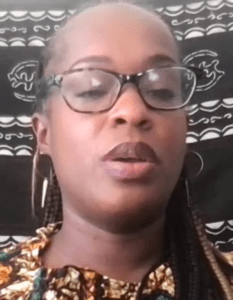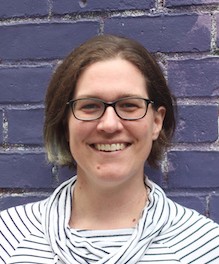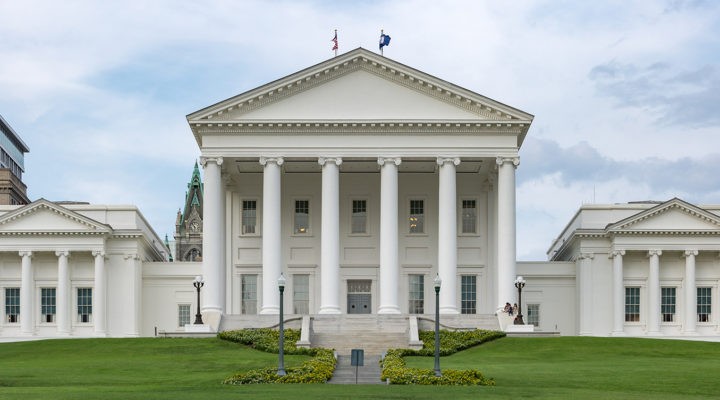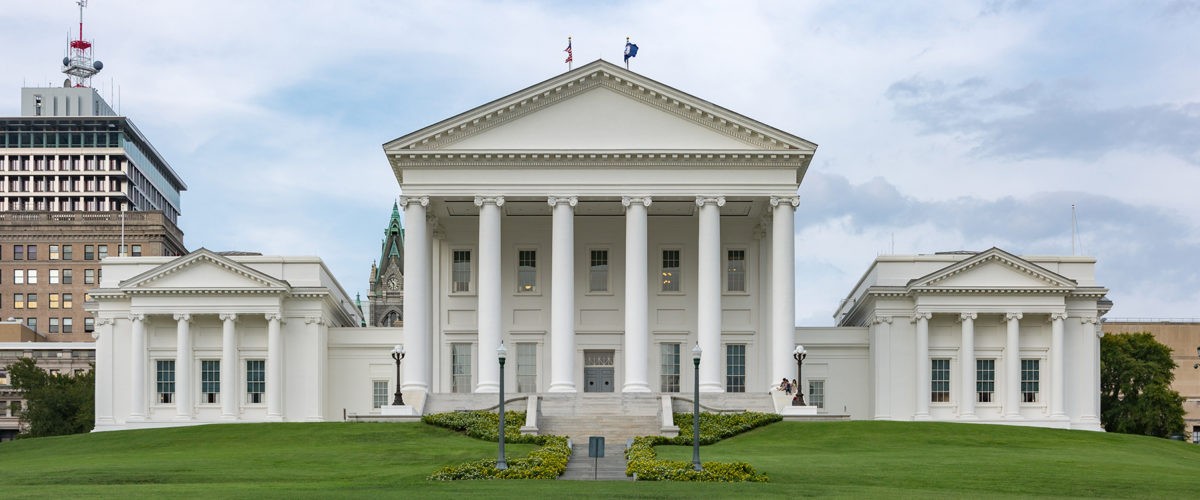Religious groups campaigning to abolish the death penalty in Virginia got a glimpse of the promised land Feb. 3 when state senators approved a bill that will end capital punishment in the Commonwealth if the House follows suit on Feb. 5.
The 21-to-17 party-line vote saw Democrats supporting the legislation championed by the Virginia Interfaith Center for Public Policy and the multi-denominational and multi-faith coalition it assembled to eliminate executions in the state.

LeKeisha Cook
“Our team is huge. These voters and pastors and faith leaders are just rallying behind this, and I believe they are the reason this has gone the way it has gone,” said LaKeisha Cook, a Baptist minister and justice reform organizer for the interfaith center.
On the same day, the identical House of Delegates bill was approved in committee, sending it to the entire House on Feb. 5.
The campaign included lay and clergy petition drives, press conferences and prayer vigils held at historic lynching sites across Virginia to illuminate the death penalty as an expression of systemic racism and an outgrowth of the slavery and Jim Crow eras.
Organizers also pushed supporters to call representatives in the General Assembly — a tactic that will be used heavily this week, Cook said.
“We’re still working hard to make sure the House of Delegates vote goes the way we want it to. We are telling people, make sure to reach out to your delegate for vote for abolition,” Cook said. “The progress in the Senate tells me we had an impact, and they are listening.”
Research shows most Virginians support repeal of capital punishment.
Research shows most Virginians support repeal of capital punishment. “Majorities favor repealing the death penalty (56%) and eliminating mandatory minimum sentences for some offenses (55%),” according to a survey released Feb. 2 by the Wason Center for Civic Research at Christopher Newport University.
Virginia Gov. Ralph Northam has declared his support for abolition, and some legislators have needed no convincing to support repeal.

Joseph Morrissey
Democratic Sen. Joseph Morrissey, who formerly prosecuted and defended capital cases, pleaded with opponents of the bill to consider the fatal flaws inherent in the death penalty. The number of death row exonerations nationally, 174, and the unknown number of those wrongly executed should motivate support for abolition, he argued, adding that capital punishment famously discriminates based on race and economic status.
“Justice is not equal across the board,” Morrissey said. “The death penalty does not deter crime.”
Morrissey’s and other senators’ comments echoed the key talking points of the faith-based campaign to end executions in Virginia. On Jan. 7, a group of Black ministers held a Zoom press conference to blast capital punishment as a form of lynching and a statement that Black lives do not matter. They noted that 100% of current death row inmates in Virginia are African American and that the state ranks second only to Texas in executions since 1976.
They added that the racial discrimination inherent in the death penalty goes back centuries, with 538 Blacks executed in Virginia from 1800 to 1900, compared to 45 whites in the same period.
“No matter the crime, a Black person would get the death penalty where a white person would get one or two years.”
“No matter the crime, a Black person would get the death penalty where a white person would get one or two years,” said James Page, a United Methodist Church pastor from Falls Church, during the virtual event.
Duane Hardy, senior pastor of a Baptist church in Sandston, pressed home the campaign’s basic message about capital punishment: “It’s horrific and it needs to change.”
With that change possibly just a House vote away, death penalty opponents say capital punishment’s days may be numbered in Virginia and beyond.

Sarah Craft
“The Virginia Senate vote marks a continuation of the national trend away from the death penalty,” said Sarah Craft, death penalty program director for Equal Justice USA, an ally of the interfaith center, in a statement emailed to Baptist News Global. “Community members and lawmakers all over the country are seeing the death penalty for what it truly is: bad public policy that is a natural extension of our history of slavery, lynching and racial terror. Ending the death penalty is an essential step in the quest for a justice system that centers community safety, healing and restorative accountability.”
Cook said she is positive going into the next phase: “I figured we would hit some obstacles and some resistance along the way, but that hasn’t really happened. I think it’s because we have had great support. There have been a lot of people rallying behind the call for abolition.”
Related articles:
The death penalty is dying a slow death; it’s time we pull the plug
Effort to end death penalty in Virginia gaining momentum; prayer vigils planned
New effort to repeal federal death penalty is beginning
Opposition to capital punishment reportedly growing among conservatives


